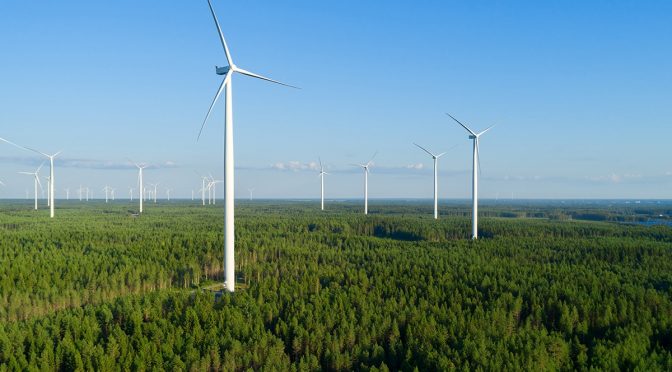GWEC Market intelligence has seen a total of 12.78 GW of wind power capacity awarded through auctions and tenders in Q2 2021. That is almost six times larger than the comparable quarter las year – Q2 2020, which saw ~2.17 GW awarded. It is also an enormous increase on Q1 2021, which saw ~7 GW awarded.
The auction schedule was severely impacted by the COVID-19 pandemic in the first two quarters of 2020. This resulted in auction activities in key mature and emerging wind markets being postponed to Q3 2020, thanks to green recovery stimulus packages and action-oriented efforts for achieving wind targets.
A total of 1.85 GW of new auctioned capacity was announced globally during Q2 2021, of which 250 MW stands unawarded as of September 2021. Of the 14.2 GW auction capacity announced in Q1 2021, almost 6 GW of its capacity remains to be awarded in the second half of 2021, mostly located in China (5.7 GW).
Offshore wind was a leading source of the new wind power capacity awarded in Q2 2021, with approximately 8.5 GW awarded in Poland (5.9 GW), USA (2.7 GW), and Japan (16.8 MW).
In the onshore wind sector, 4.2 GW of new wind capacity was awarded globally in Q2 2021, led by China (nearly 50%), followed by Germany (42%), Poland (7%) and Italy (1%).https://e.infogram.com/0a989ef2-e311-409b-a594-74828b3fe44d?parent_url=https%3A%2F%2Fgwec.net%2Fglobal-wind-power-capacity-awarded-in-q2-2021-six-times-larger-than-q2-2020%2F&src=embed#async_embed
In Europe, a total 2.1 GW of onshore wind capacity was awarded in the second quarter of this year through auctions in Germany, Poland, and Italy. All these auctions were undersubscribed, which indicates developers’ hesitancy to participate. This is primarily due to the so-called 10H Distance Rule in Poland, which hampers onshore wind project development, as well as the persisting permitting issues in Germany and Italy. In addition, the full capacity from the third joint solar-wind 350 MW tender in Greece, launched in May, was awarded to solar.
The European offshore wind sector achieved great progress in Q2 2021. Following the first Offshore Wind Act passed in January 2021, Poland awarded the first phase of offshore wind projects of ~5.9 GW capacity by 30 June 2021 through its CfD scheme, with financial support of EUR 22.5 billion coming from the European Commission. In April 2021, France announced the first commercial floating offshore wind auction for a 250 MW project in the Atlantic Ocean south of Brittany, announced under the country’s Multiannual Energy Programme (PPE), with the deadline to express interest from parties closing on 19 July 2021.
In Asia, China was the only country that awarded onshore wind auctions in Q2 2021. All the 2.1 GW approved and awarded onshore wind capacity are parity-based projects, meaning those projects will be paid based on the regulated price for coal power in each province. 2021 also marks the first year of China’s 14th Five-year Plan period. Most provinces have not yet approved auctions for new projects in 2021, because 30+ GW onshore wind capacity and 10+ GW offshore wind capacity approved during 13th Five-year plan period are still yet to be built.
Japan awarded the first commercial floating offshore wind auction of 16.8 MW to a six-company consortium led by Toda Corporation, making it the only offshore wind auction awarded in Asia in Q2 2021. The project will be built in Goto, Nagasaki Prefecture, with the FiT set at 36 yen/kWh (or EUR 0.25/kWh).
India, the world’s fourth-largest market in terms of cumulative wind installed capacity, did not award any auctions on account of the second wave of COVID-19 from April to mid-June. No wind auctions were awarded in Africa and the Middle East in the second quarter of 2021.
In North America, following the momentum in the US in Q1 2021, New Jersey awarded two offshore wind projects for a total of 2.6 GW under its second solicitation. In Latin America, Brazil announced two technology-neutral auctions with unknown capacity, A-3 and A-4, as per schedule on 25 June 2021.
Overly complex and bureaucratic permitting procedures remain a critical market barrier, which creates high attrition rates for project applications and are slowing down wind power deployment in countries around the world, from Germany to India. To achieve our international climate targets, a sensible and positive regulatory environment needs to be in place to ensure successful procurement and smooth project timelines for both onshore and offshore wind. Feng Zhao, Head of Strategy and Market Intelligence, GWEC Tweet
“Compared with the same period in 2020, Q2 2021 wind auction results are encouraging, and demonstrate that auction activities are coming back on track. Offshore wind was a leading technology in the Q2 2021 auction process, which demonstrates its cost competitiveness and shows that offshore wind’s vast decarbonisation potential is being recognised by countries around the world. However, auction progress is not enough to meet the growth volume and pace required to keep the world on path compatible with meeting our climate goals under the Paris agreement, and reaching net zero by mid-century” said Feng Zhao, Head of Strategy and Market Intelligence.
“Overly complex and bureaucratic permitting procedures remain a critical market barrier, which creates high attrition rates for project applications and are slowing down wind power deployment in countries around the world, from Germany to India. To achieve our international climate targets, a sensible and positive regulatory environment needs to be in place to ensure successful procurement and smooth project timelines for both onshore and offshore wind.”
The full Q2 2021 Wind Energy Auction Update, which includes both analysis and a full database of global wind auctioned capacity, is available exclusively on GWEC’s Members Area. If you are not yet a GWEC Member or subscriber of GWEC Market Intelligence, please contact Raveen Singh at [email protected] and Marina Prado Romera at [email protected] to find out more on how you can access GWEC Market Intelligence products.


